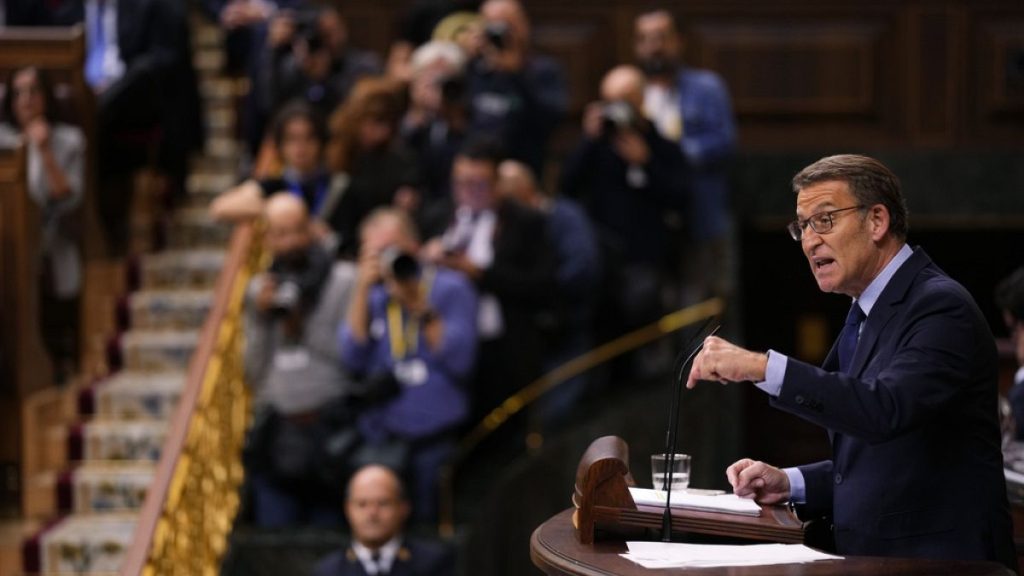The Popular Party’s policy platform for the June EU elections is focused on four main areas: democracy, economy, social policies, and geopolitics. This conservative, Christian-democratic party is looking to challenge the ruling socialists by presenting a strong and comprehensive electoral program. Many see these upcoming elections as a chance for the Popular Party to make their mark and potentially challenge the current government led by Prime Minister Pedro Sánchez. The opposition is framing this election as a second round of Spain’s general elections, turning it into a referendum on Sánchez’s government.
In Madrid, the Popular Party unveiled its policy platform for the June EU elections, outlining their plans to focus on key issues that are important to the Spanish population. These include democracy, with a focus on transparency and accountability, the economy, with a focus on creating jobs and promoting economic growth, social policies, with a focus on improving social services and welfare programs, and geopolitics, with a focus on Spain’s role in the European Union and on the world stage. By presenting a cohesive and comprehensive platform, the Popular Party is aiming to attract voters who are looking for a viable alternative to the current government.
The upcoming EU elections are being seen as a crucial moment for the Popular Party, as they have the opportunity to enhance their standing and potentially challenge the ruling socialists. By focusing on key issues that are important to the Spanish population, the Popular Party is hoping to gain support and make gains in the upcoming elections. The opposition is framing the elections as a second round of Spain’s general elections, turning it into a referendum on the government of Prime Minister Pedro Sánchez. This sets the stage for a high-stakes political showdown, as the Popular Party looks to capitalize on the discontent among voters and present themselves as a viable alternative.
The Popular Party’s policy platform for the upcoming EU elections is aimed at addressing key issues that are important to the Spanish population. By focusing on democracy, economy, social policies, and geopolitics, the party is presenting a comprehensive plan that appeals to a wide range of voters. With the opposition framing the elections as a referendum on the current government led by socialist Prime Minister Pedro Sánchez, the Popular Party has an opportunity to gain momentum and potentially challenge the ruling socialists. The upcoming elections are shaping up to be a high-stakes political showdown, with both parties vying for the support of the Spanish electorate.
The Popular Party’s policy platform for the June EU elections is centered around four key areas: democracy, economy, social policies, and geopolitics. By outlining their plans to address these important issues, the party is positioning themselves as a strong and viable alternative to the current government. With the opposition framing the elections as a referendum on the government of Prime Minister Pedro Sánchez, the Popular Party has an opportunity to make gains and potentially challenge the ruling socialists. The upcoming elections are seen as a crucial moment for the Popular Party, as they have the chance to attract voters who are looking for change and present themselves as a credible alternative.
Overall, the Popular Party’s policy platform for the June EU elections is focused on addressing key issues that are important to the Spanish population. By presenting a comprehensive plan that covers democracy, economy, social policies, and geopolitics, the party is aiming to attract voters and position themselves as a strong alternative to the ruling socialists. The upcoming elections are being seen as a chance for the Popular Party to challenge the current government led by Prime Minister Pedro Sánchez. With the opposition framing the elections as a referendum on Sánchez’s government, the Popular Party has an opportunity to capitalize on the discontent among voters and make gains in the upcoming elections. This sets the stage for a high-stakes political showdown, as both parties vie for the support of the Spanish electorate.


